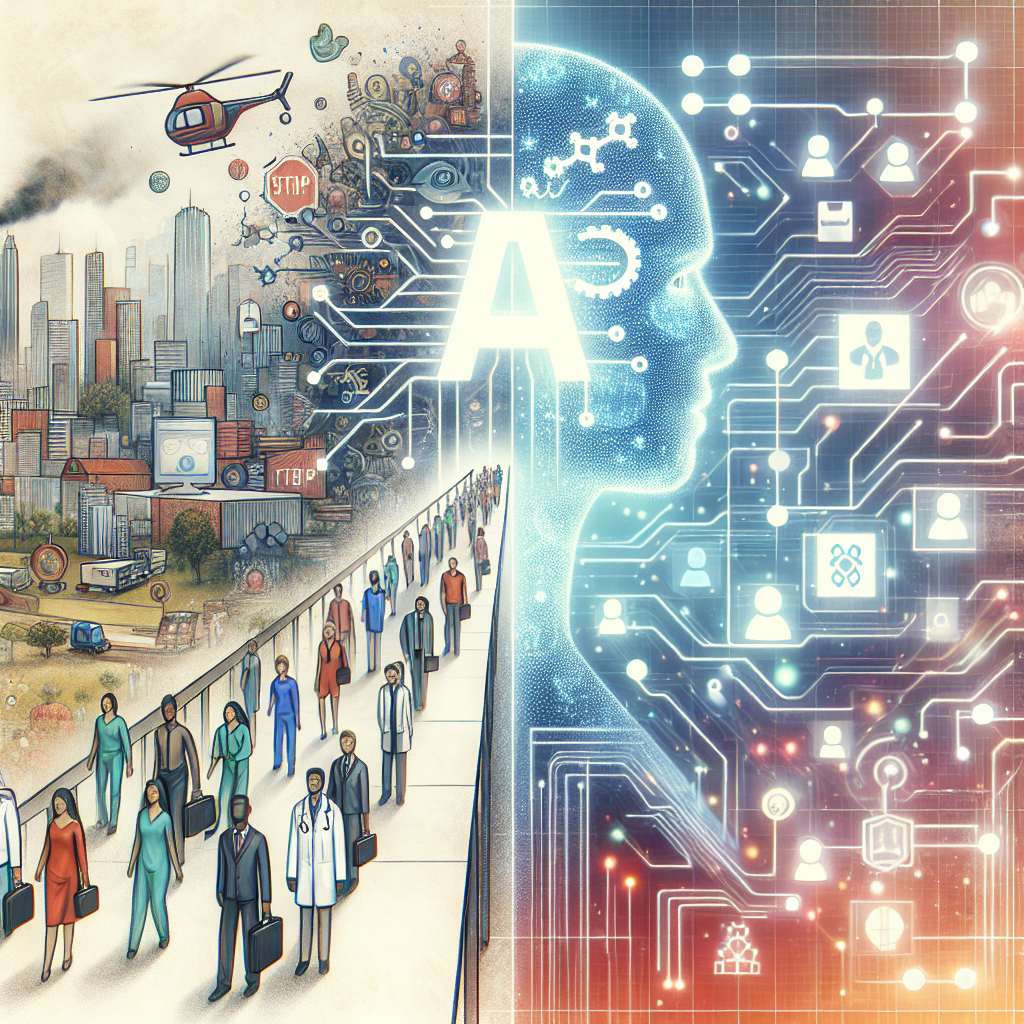The Job Market and AI: Navigating a Sensitive Tech Debate
The Job Market and AI: Navigating a Sensitive Tech Debate
Introduction
The integration of artificial intelligence (AI) into the job market is a topic of intense debate, with stakeholders weighing the potential benefits against the risks. This discussion is crucial as AI continues to evolve and reshape industries worldwide.
Opportunities Presented by AI
AI offers numerous advantages that could transform the job market positively:
- Increased Efficiency: AI can automate repetitive tasks, allowing human workers to focus on more complex and creative activities.
- Innovation: AI-driven insights can lead to the development of new products and services, potentially creating new job categories.
- Enhanced Decision-Making: AI tools can analyze vast amounts of data quickly, aiding in more informed business decisions.
Challenges and Concerns
Despite its potential, AI also poses significant challenges that need to be addressed:
- Job Displacement: Automation may lead to the loss of jobs, particularly in sectors reliant on routine tasks.
- Skill Gaps: The demand for AI-related skills may outpace the current workforce’s capabilities, necessitating extensive retraining programs.
- Ethical Considerations: The use of AI raises questions about privacy, bias, and accountability that must be carefully managed.
Strategies for Navigating the Debate
To effectively navigate the integration of AI into the job market, several strategies can be employed:
- Education and Training: Investing in education systems to equip workers with the skills needed for AI-related roles.
- Policy Development: Governments and organizations should develop policies that balance innovation with job security.
- Collaboration: Encouraging collaboration between tech companies, policymakers, and educational institutions to address AI’s impact comprehensively.
Conclusion
The debate over AI’s role in the job market is complex, with both opportunities and challenges. By focusing on education, policy, and collaboration, stakeholders can harness AI’s potential while mitigating its risks. The future of work will likely be a blend of human ingenuity and AI capabilities, requiring thoughtful navigation to ensure a balanced and equitable transition.






































